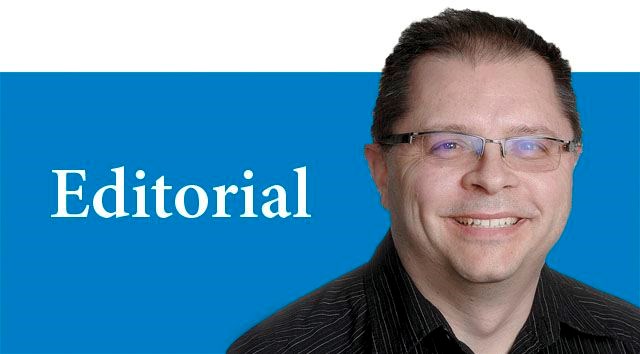The legacy left behind by Cuban dictator Fidel Castro in the wake of his death last month continues to divide local residents, based on letters to the editor and guest editorials published in The Citizen.
Unfortunately, this is what happens when labels are thrown on complex individuals in complicated situations. Castro was a dictator, even his most fierce apologists agree with that, but after that, the picture gets muddy in a hurry. He was a Communist out of political necessity to keep the United States at bay. He delivered health care and education to his people but didn't let them vote or have a free press.
The problem with political obituaries is they are rarely one-dimensional. Most often, they show a mixed record of accomplishment combined with deplorable behaviour and an abuse of power, regardless of whether they were democratically elected leaders or dictators who seized control.
Castro isn't even the first Caribbean dictator who ruled with an iron fist but also delivered meaningful benefits to his people. Historians say Rafael Trujillo is responsible for the deaths of tens of thousands of opponents during his 31-year regime in the Dominican Republic. They also point to large infrastructure projects that modernized the nation. Logging was significantly restricted, the army patrolled the nation's forests and had orders to shoot on sight anyone cutting down trees, particularly on its border with Haiti.
Long after Trujillo's death, Dominicans continue to value and protect their forests but without the deadly consequences. As a result, their mostly forested side of the island of Hispaniola stands in stark contrast on satellite photos to the mostly deforested lands of their Haitian neighbours. In other words, Trujillo's brutal logging policy is partly responsible for the environmental and economic health of the Dominican Republic to this day.
Former U.S. president Richard Nixon is another dubious political leader with a fabulous environmental record. Before resigning in disgrace in the wake of the Watergate scandal, Nixon created the Environmental Protection Agency and passed various laws to improve air quality, safeguard drinking water and protect sensitive habitats and endangered species.
Next month, as Barack Obama hands over the Oval Office to Donald Trump, there will be numerous lookbacks at the two terms of America's first black president. Obamacare and taking out Osama bin Laden will be seen as high points during Obama's term but the surveillance state, the militarization of the Internet and drone warfare saw huge growth under his watch. And Guantanamo Bay is still open, despite his pledge to close it down.
In fact, mixed legacies can arise out of even the most depraved of circumstances.
During the cold weather that has gripped Prince George this week, there has been rightful concern for street people and individuals who have to work outdoors. At these temperatures, hypothermia is a serious risk after an extended period of time in the cold without proper clothing.
Much of the medical community's knowledge of hypothermia and particularly how to treat it came from horrific experiments performed on Jewish prisoners in Nazi concentration camps during the Second World War. With thousands of soldiers dying daily of cold on the Russian front lines, German doctors conducted a variety of cruel tests to determine how much a body's core temperature could decrease, how long it could stay that way before the organs failed and the most effective prevention and treatment methods.
The doctors conducting the trials kept detailed records, forming the basis for methods used to this day to combat hypothermia.
There is no defence for the inhumane treatment of the prisoners used for these experiments, but the torture and deaths of the test subjects were not in vain, either. Out of the horrors of the Holocaust came an enduring contribution to the health and welfare of humanity. This creates an ethical dilemma around ill-gotten gains and the morality of individuals benefiting in the present from immoral actions taken by others in the past.
The death of Castro last month and the end of Obama's presidency next month is a reminder that personal and political legacies can be viewed through a variety of lenses, but the most insightful analyses provide an honest account of the good and bad, the benevolent and brutish, the accomplishments and failures.
-- Managing editor Neil Godbout



